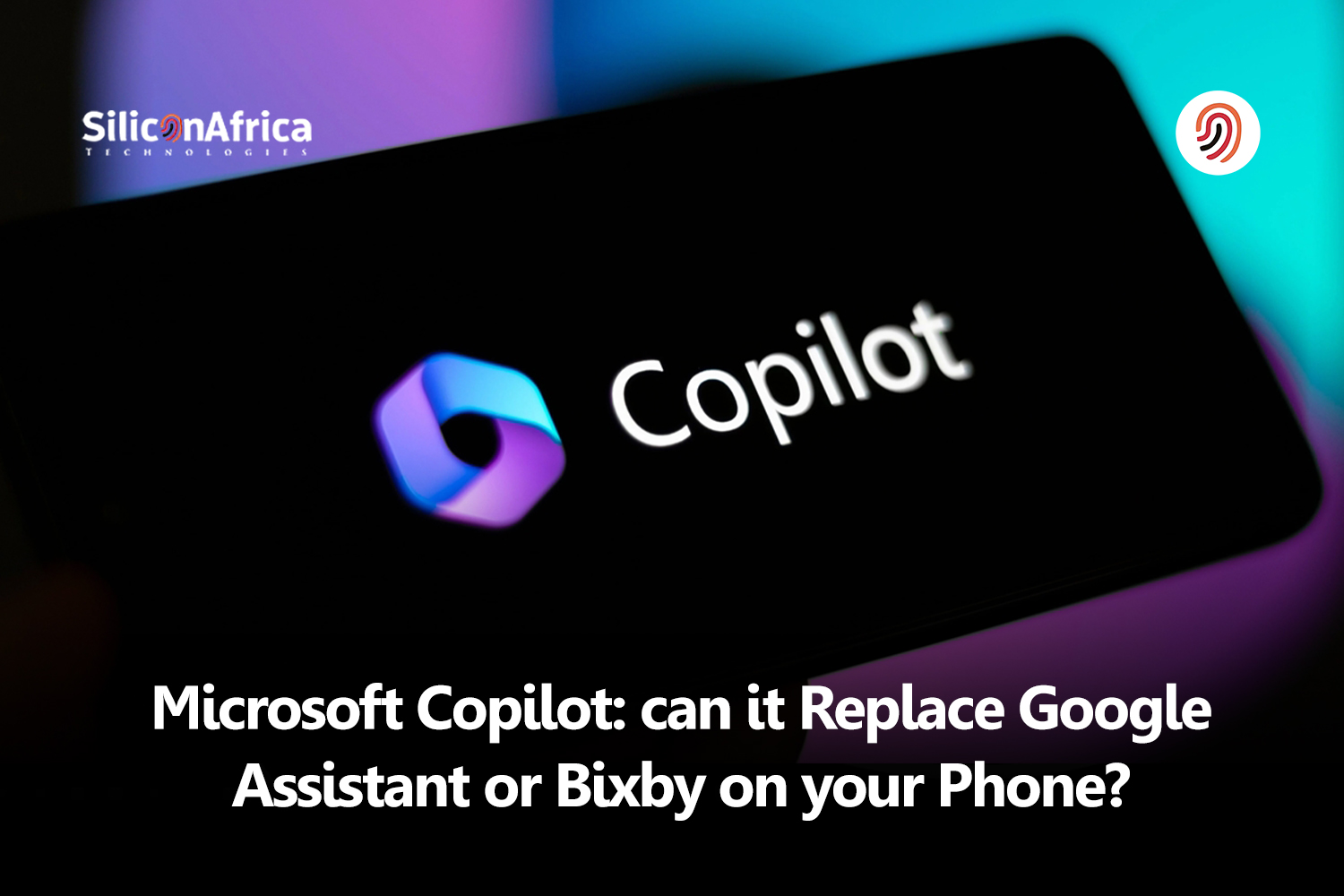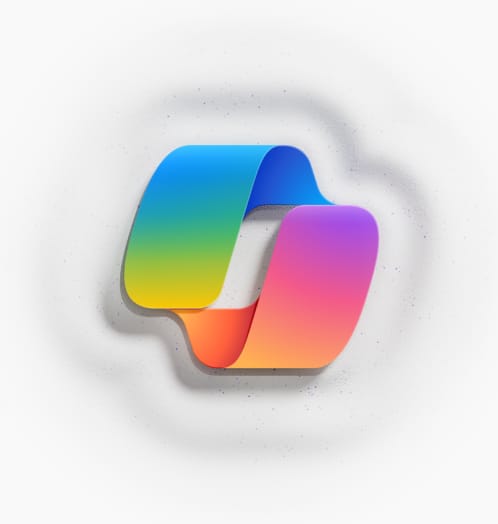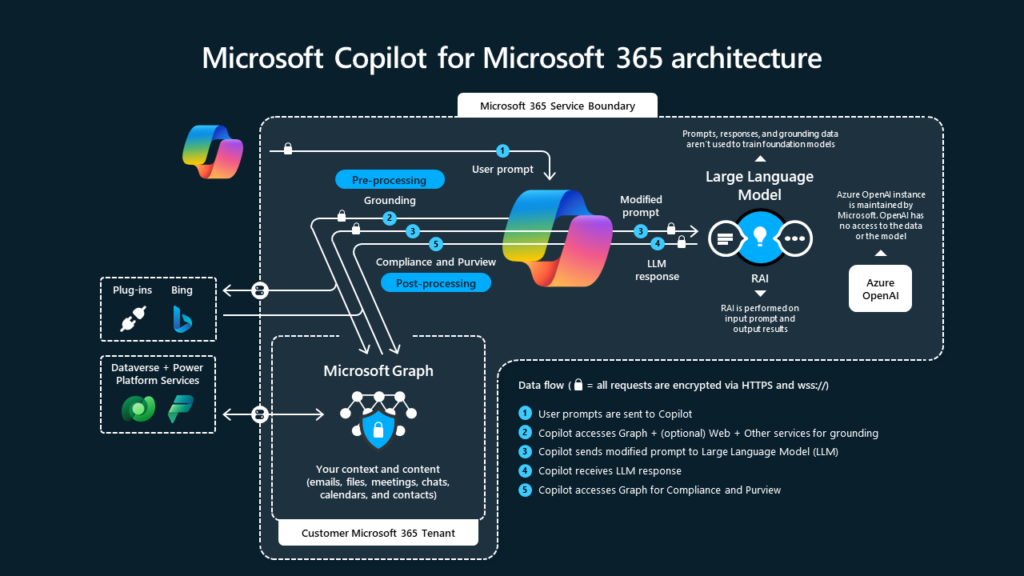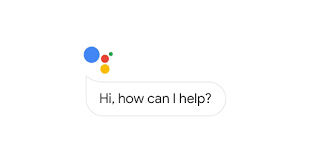Physical Address
60 Ekwema Cres, Layout 460281, Imo
Physical Address
60 Ekwema Cres, Layout 460281, Imo

With its new product, Copilot, Microsoft is set to challenge Google Assistant and Bixby on Android, but can it change how we interact with phones?

From communicating via letters to the creation of the telephone and internet, humans have always found a way to make life better. With each innovation, the pinnacle of advancement seems almost unreachable.
Yet, every technological leap forward renders previous advancements obsolete.
Just as platforms like 2go faded into obscurity with the emergence of new social media platforms, the sustainability of any innovation hinges on continual improvements and alignment with evolving trends.
As Microsoft unveils Copilot, could this new technological marvel replace Google Assistant and Bixby on your phone?
What sets it apart? Let’s delve deeper into this innovative technology to find out.
Microsoft has recently introduced the 365 Copilot to transform how we work.
Made with the combination of large language models (LLM) and the data in the Microsoft Graph and 365 apps, the Copilot is an AI-powered digital assistant that can help you navigate through tasks and improve productivity.
Its latest beta build, version 27.9.420225014, introduces automatic registration as a digital assistant option on Android phones, allowing users to access Copilot easily.
Microsoft Copilot offers a wide range of uses and applications. Here are some key areas where Copilot can be particularly beneficial:
Copilot is integrated into Microsoft 365 apps, including Word, Excel, PowerPoint, Outlook, and Teams, to streamline workflows and enhance productivity.

It assists users in drafting documents, analyzing data, creating presentations, managing emails, and collaborating with team members more efficiently.
It helps in creating and editing content through suggestion provisions, draft generation, and offering creative insights.
It can help users write articles, reports, presentations, and other documents.
It enables automation of repetitive tasks through Power Platform integration, allowing users to automate workflows, create chatbots, and develop applications without extensive coding knowledge. This makes business processes the fastest and most efficient in task execution.
In Microsoft Teams meetings, Copilot can provide real-time assistance in many ways. It can summarize discussions, identify action items, and suggest follow-up actions.
It is also capable of recording, transcribing, and summarizing meetings.
Additionally, it can generate action items and agendas to improve effective communication and collaboration.
Within Excel, Copilot can assist users in analyzing data trends, creating visualizations, and generating insights quickly.
Personalized assistance through Business Chat provides tailored information and suggestions based on users’ preferences, calendars, emails, chats, and documents.
Copilot sparks creative inspiration by generating ideas, suggesting improvements, and providing feedback on creative projects. Whether users are writing, designing, or brainstorming, Copilot offers helpful suggestions to enhance creativity and innovation.
Copilot excels at creating concise summaries of long or complex documents, such as PowerPoint presentations, Word documents, and email threads.
Additionally, it can find and surface relevant information across different Microsoft services or apps, such as webpages and SharePoint, as well as public or private data sources, leveraging everything users have to access the Microsoft ecosystem.
Google Assistant is a smart helper made by Google to help with tasks and find information using voice commands. It’s like having a friendly guide on your phone!

You can ask Google Assistant anything, and it uses Google’s search engine to get you answers fast.
Need to know the weather or want to hear the latest news? Just ask Google Assistant! It also works with many apps, so you can send messages, make reservations, and more without touching your phone.
Plus, if you have smart home gadgets, Google Assistant can control them.
Bixby is a helpful assistant created by Samsung to simplify your life, especially if you’re using Samsung devices.

It can do many things, like sending messages, making calls, and searching the web—all with just your voice!
Bixby’s unique vision feature lets you use your phone’s camera to do cool stuff like identify objects or translate text. It even has a personalized hub called Bixby Home that gives you updates and suggestions based on what you like.
With the introduction of Microsoft Copilot into the digital assistant arena, users now have another option to consider alongside Google Assistant and Bixby. Let’s explore how Copilot compares to its counterparts in various aspects.
| Features | Microsoft Copilot | Google Assistant | Bixby |
| Voice Recognition | Natural language interaction, ChatGPT technology | Superior voice recognition, Google search | Device-specific commands, Bixby Voice |
| Integration | Integrated into Microsoft 365 apps | Cross-platform integration | Samsung device optimization |
| Productivity Tools | Draft generation, task automation in Microsoft 365 | 1 million Actions, app integrations | Collaborative features in Samsung devices |
| Collaboration | Real-time assistance in Teams meetings | Seamless integration with apps | Collaborative features in Samsung devices |
| Automation | Automation through Power Platform integration | Task automation, home control | Device automation, routines |
| Privacy and Security | Microsoft’s stringent privacy policies | Google’s privacy measures | Samsung’s privacy policies |
Google Assistant has long been praised for its superior voice recognition and natural language processing abilities, thanks to Google’s extensive search expertise.
Bixby, on the other hand, focuses more on device interactions but may struggle with understanding complex queries.
Copilot, powered by large language models (LLMs), aims to provide accurate and efficient responses to user queries, positioning itself as a contender in voice recognition and natural language understanding.
Google Assistant boasts over 1 million actions, expanding its capabilities in task automation and assistance.
Bixby offers features like Bixby Vision and Bixby Routines for device optimization and automation.
Copilot, integrated into Microsoft 365 apps, focuses on streamlining work processes and enhancing productivity through natural language interactions.
It offers features like generating drafts in Word, summarizing email threads in Outlook, and automating repetitive tasks in Power Platform.
Google Assistant leads in accessibility features, offering a range of customizable options for users with disabilities.
Bixby provides tight integration with Samsung devices, enhancing accessibility for Samsung ecosystem users.
Copilot aims to offer a user-friendly interface and personalized assistance within Microsoft 365 apps, catering to diverse user needs and preferences.
Google Assistant is available on both Android and iOS devices, with seamless integration across various platforms.
Bixby offers deep integration with Samsung devices, providing optimized interactions and features.
Copilot integrates into Microsoft 365 apps like Word, Excel, PowerPoint, Outlook, and Teams, enhancing productivity and collaboration within the Microsoft ecosystem.
Google Assistant and Bixby prioritize user privacy, offering options to control voice data and ensure transparency.
Copilot, integrated into Microsoft 365, adheres to Microsoft’s privacy policies and data protection measures, ensuring user privacy and security are maintained.
Google Assistant continues to evolve with new features and integrations, expanding its capabilities and reach.
Bixby focuses on innovation within the Samsung ecosystem, introducing unique functionalities like Bixby Vision and Bixby Routines.
Copilot, as a newcomer, may undergo further enhancements and improvements based on user feedback and technological advancements, potentially reshaping the landscape of digital assistants in the workplace.
While Microsoft Copilot offers unique features and capabilities, whether it can replace Google Assistant and Bixby depends on various factors:
Copilot excels in productivity enhancement, content creation, and integration within the Microsoft ecosystem. It may appeal to users heavily invested in Microsoft services and seeking seamless integration across their devices and applications.
Copilot’s limitations, such as platform compatibility and customization options, may hinder its ability to compete directly with Google Assistant and Bixby.
Microsoft may need to address these limitations and refine Copilot’s features to broaden its appeal and usability.
The choice between Copilot, Google Assistant, and Bixby ultimately depends on user preferences, device compatibility, and ecosystem considerations.
Users should evaluate the strengths and limitations of each assistant and choose the one that best aligns with their needs and preferences.
In summary, while Microsoft Copilot offers compelling features and capabilities, it may not fully replace Google Assistant and Bixby for all users.
However, it is a valuable addition to the virtual assistant landscape, particularly for users within the Microsoft ecosystem seeking enhanced productivity and integration.
Continued development and refinement may further solidify Copilot’s position as a viable alternative to other virtual assistants.
The choice between these assistants ultimately depends on user preferences, device compatibility, and specific workflow requirements.
Yes, Google Assistant is available on Samsung mobile devices. It offers various helpful features, such as creating voice shortcuts for favorite apps and controlling the device through voice commands.
The choice between Bixby and Google Assistant depends on your ecosystem and needs. Bixby integrates seamlessly with Samsung devices, while Google Assistant is more optimized for Android and Google services.
Unless you are heavily invested in Samsung products, Google Assistant generally offers greater utility, especially for general knowledge and broad home automation.
Samsung’s AI assistant is called Bixby. It serves as a digital assistant, allowing users to perform tasks using voice commands. Bixby can send texts, check the weather, make calls, launch apps, control music playback, and more, similar to other voice assistants.